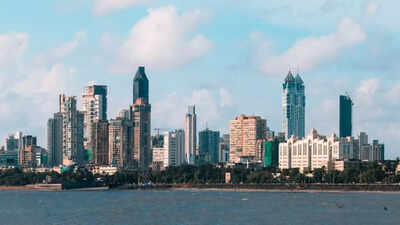Why Gulf-based NRIs are investing in Indian property like never before | World News
July 20, 2025
TL;DR:After years of double-digit growth, real estate in cities like Mumbai, Bengaluru, Pune, Delhi-NCR, and Hyderabad is showing signs of single-digit appreciation in 2025. A recent summary highlights slowing prices creating a “window” for Gulf-based Indians to invest. Developers note renewed interest in luxury and mid-range housing among NRIs; as per NRIway, Mumbai and Bengaluru alone account for 17–29% of NRI primary flat sales. In the southern markets, such as Kerala, there is also visible interest in mid-tier housing, with infrastructure improvements playing a supporting role in sustaining demand. Additionally, a comprehensive report by 99acres corroborates that the cities of Kochi, Pune, and Hyderabad are preferred by Gulf NRIs for their balance of rental yield potential, infrastructural advancements, and lifestyle facilities.
Strong Fundamentals & Sustainability Focus
NRI buyers are becoming more selective, demanding quality, green design, and sustainable features. NRIs from the Gulf are seeking out developers with strong track records, as concerns about delays, regulatory hurdles, and quality issues persist. NRIs now gravitate toward RERA-registered projects with clear titles and transparent documentation. Simultaneously, India’s macroeconomic stability, including infrastructure investment and rising urbanisation, has increased its attractiveness versus other emerging markets like Mexico or Brazil.
Currency Advantage & Fractional Ownership
The depreciation of the Indian Rupee, which is trading around INR 83-84 per USD as of July 2025, offers NRIs an edge. Earning in stable currencies like the USD, AED, or SAR significantly enhances their purchasing power in India. A report in June 2025 highlighted that NRIs are taking advantage of this favourable exchange rate, particularly for high-ticket purchases in the Indian property market. This financial leverage is further complemented by the rise of fractional ownership models, where NRIs can invest smaller amounts into premium commercial properties or luxury residences, collectively owned with other investors.Fractional real estate platforms such as: Myre Capital, Strata, PropShare, hBits: allowing multiple investors to own shares in premium assets have crossed USD 1 billion in cumulative transactions this year, offering stable rental returns of 8–10% as per Anarock .
Investment Hotspots & Objectives
Gulf NRIs target cities like Delhi-NCR, Pune, Bengaluru, and Kochi, drawn by rental demand, emerging infrastructure, and lifestyle appeal. Fractional formats are increasingly common in commercial and industrial assets, aligning with institutional investment trends. Many NRI families also view Indian real estate as a strategic option for education support—buying near universities for their children studying back home.
Regulatory & Financial Considerations
While buying residential and commercial properties is straightforward for NRIs, farmland purchase is restricted, although inheritance or leasing is allowed in certain states. NRIs must manage:
Expert Views & Emerging Trends
With stable or cooling prices, favourable currency rates, and new investment options like fractional ownership, Gulf NRIs have strong reasons to return to India’s real estate market in 2025. However, they must navigate regulatory nuances such as farmland limitations, tax compliances, and fund repatriation to make informed decisions. As Indian urban infrastructure and investment frameworks mature, now could be one of the best windows for NRIs to enter or expand their property portfolios back home.
Search
RECENT PRESS RELEASES
Related Post





